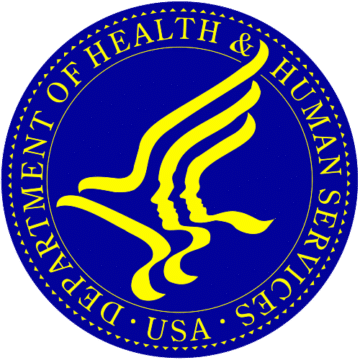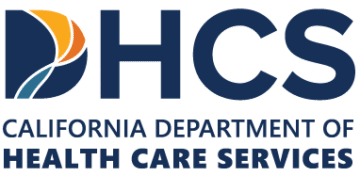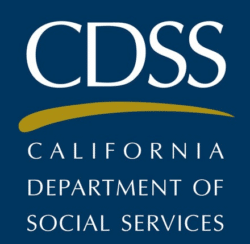


For years, Attention Deficit Hyperactivity Disorder (ADHD) was thought to only affect children. We now understand that ADHD also affects up to 4.4% of adults as well. It is one of the most common mental health disorders and is frequently accompanied by other disorders, such as anxiety or depression.
Comorbidity refers to 2 or more medical or mental health disorders occurring at the same time. Treating one disorder may relieve symptoms of that particular disorder, but symptoms such as depression or anxiety will still be present. 50% of people with ADHD also have other disorders.
This is one reason why it’s important to always consult with a doctor or mental health expert if you suspect you may be living with any type of mental health disorder. Treatment varies from person to person, and it is important to find the right treatment for your particular diagnosis and specific range of symptoms.
Curious to see where you lay on the ADHD scale? This free test, based on standard DSM-5 criteria for attention deficit hyperactivity disorder, may serve you as a valuable assessment.
ADHD or ADD (Attention Deficit Disorder) is a neurological condition that presents with symptoms of inattention and/or hyperactive impulsivity that interferes with day-to-day functioning in at least 2 settings, such as home and work.
About two-thirds of people who presented ADHD symptoms as a child will continue to experience or exhibit symptoms as adults, though the symptoms do tend to look a little differently in adults. Someone who was never properly diagnosed as a child may suffer psychologically as an adult, as a result of years of blaming themselves for their symptoms, or attempting to stifle or conceal them.
Symptoms of ADHD can look like:
Keep in mind, most of us experience some of these symptoms some of the time. An occasional missed deadline or forgetting someone’s name once in a while does not warrant a diagnosis of ADHD. ADHD symptoms will go on for years, and will likely hinder your success in school or work.
There are three different categories of ADHD:
This was previously called ADD (Attention Deficit Disorder) and refers to those presenting with difficulty in organization and completing tasks.
This type of ADHD makes it really hard for people to sit still. They are usually impulsive and have trouble listening to directions.
People with this type of ADHD have symptoms of both of the aforementioned types.
You can think of predominantly inattentive as more cerebral, and hyperactive-impulsivity as more physical; those with predominantly inattentive ADHD will make careless mistakes, be easily distracted, appear to not listen, or simply can’t seem to stay organized.
Those with hyperactive–impulsivity presentation will talk excessively, interrupt people, have trouble standing in line, or are unable to sit still without fidgeting.
Close to 50% of those living with ADHD also struggle with a second condition, such as anxiety, depression, or a learning disorder. Often people will find that even after they have successfully learned to manage their ADHD symptoms, they still feel depressed. Or severe anxiety. Or find that even though they can focus better, they still feel unmotivated.
When it comes to comorbidity it is important to discover and treat symptoms of both disorders. Ridding oneself of ADHD symptoms can be life-changing, but it doesn’t feel so great if anxiety or depression still persists.
The most common comorbidities that occur alongside ADHD include:
Sometimes these disorders are secondary to ADHD; meaning that they are triggered by the frustration and anxiety that stems from dealing with ADHD symptoms. When that is the case, treating ADHD will often take care of those secondary disorders. When that is not the case, and the secondary problems do not subside with successful treatment of ADHD, then it is considered a comorbid disorder and must be treated on its own.
There are ways to distinguish between secondary and comorbid disorders.
Secondary problems usually start at a certain time, or under very specific conditions. For example, if someone only experiences severe anxiety when they sit down to pay their bills, anxiety is likely a secondary disorder, meaning it is triggered by a symptom of ADHD (difficulty focusing or concentrating).
Comorbid disorders, on the other hand, are chronic and pervasive. Meaning they have been a problem for years, often since childhood, and occur in everyday life situations. Someone with a generalized anxiety disorder (GAD) for example, won’t just feel anxiety when they sit down to pay their bills, but frequently. Whether they are at work, at home, or even on a “relaxing” vacation, anxiety will persist. This usually means that the anxiety is a comorbid disorder; it will continue to be a problem even after the symptoms of ADHD have been treated.
There are three types of comorbid disorders that occur parallel to ADHD:
1. Cortical wiring problems are caused by abnormalities in the cerebral cortex, the area of the brain responsible for high-level brain functioning. This includes:
These disorders can be treated with lifestyle changes and discovering new ways of learning. Medication is not used to treat cortical wiring issues.
2. Tic disorders refer to sudden twitches of muscle groups. There is a spectrum, ranging from mild to severe, and can look like:
3. Problems regulating emotions include disorders such as:
These are serious disorders that when left untreated can lead to even more disorders, such as addiction or suicidal ideation. It is important to seek out medical assistance if you or someone you care for are living with any of these disorders.
Treatment may include therapy, medication, and quite often both.
Keep in mind, depression isn’t the same as occasional sadness over events, such as losing a job or breaking up with a partner. Clinical depression is chronic and persistent and can hinder one’s ability to function.
Anxiety disorders aren’t the occasional flare-up of nervousness when faced with a challenge; they are debilitating and can make it nearly impossible to live in the moment or to enjoy everyday life.
People sometimes joke about being “OCD” when they organize their cupboards or closets, but it is much more serious than that. OCD is a series of obsessions and compulsions that often get in the way of everyday life, and can lead to depression, anxiety, or even substance abuse as a way of self-medicating away the exhausting obsessions and compulsions.
Likewise with bipolar disorder; it’s not just extreme moodiness (though it may appear that way to the outsider), it is a complex disorder that requires professional care, and often medication to keep it managed.
If you or someone you care for have successfully addressed ADHD symptoms, but are still struggling with any of the symptoms listed above, please seek out medical or psychological care as soon as possible. Treatment is available, and relief is possible.
The first step towards the treatment of ADHD or any other mental health disorder is to seek out a professional opinion. Every person is different, and symptoms for every disorder can appear differently in everyone. Call your doctor or a therapist if you or someone you care for is struggling with the symptoms of ADHD and any comorbid disorders.
In order to receive a diagnosis of ADHD your doctor or mental health provider will likely ask you questions such as:
Medication can be very effective at treating the symptoms of ADHD. Stimulants and non-stimulants can help people to pay attention, concentrate more effectively, and control their impulses.
Therapy, specifically cognitive-behavior therapy (CBT), can be incredibly effective for those living with comorbid disorders, such as anxiety.
Comorbidity can make the treatment of ADHD a bit more challenging. It is up to you and your health care provider to determine which of your disorders is more detrimental to your health.
For example, if you have been struggling with alcohol abuse as a means of “self-medication” in order to minimize the anxiety that ADHD gives you, it is important to address that first. It is very difficult to effectively address and try to change things about your thinking and behavior if you are under the influence of alcohol or other drugs.
The same thing goes for severe anxiety or depression. Someone who is so depressed that it is hard to function will need to address that depression before they will have the wherewithal to address their ADHD.
That being said, if someone who is feeling anxiety because of their ADHD symptoms finds some relief in that regard, they may find their anxiety also subsides.
It is complicated, and therefore imperative to find a mental health care provider who can help you to navigate all of your symptoms.
ADHD and any comorbid disorders are a complex set of symptoms that can affect every aspect of your life. Even if you are undergoing successful treatment and finding relief, it can still be a difficult and ongoing process. Chances are you will run into bumps along the way. That is perfectly normal, and here are some things you can do to make it easier for yourself or your loved one as you navigate recovery from ADHD:
Support groups get a bit of a bad rap. Television and movies make them seem cheesy and self-gratifying. But talking to other people who understand exactly what you are going through can be very comforting. Not only might you receive some helpful tips and stories, but you can provide your own experience as well. And helping someone who is struggling is one of the most powerful forms of “self-help” there is. Being helpful is extremely empowering.
Social support is incredibly important. Don’t go through this alone. Let your spouse, friends, family and children know what you’re going through. Talk to them about it, and let them support you. It may be difficult to open up at first, but you may be surprised to find that letting people in on your struggles will relieve those struggles, even just a little bit. And quite possibly improve your relationships.
This is a hard one for many. But again, you may be surprised at the support you receive. Maybe your boss will let you work from home on days when you find it particularly difficult to focus. Your co-workers may be willing to turn down their music, or help you answer emails you can’t seem to get to. Small accommodations can be made in order to make a huge difference in your ability to succeed – but you may need to ask for them.
As an adult, discovering that you have been unknowingly living with ADHD for your entire life can be life-changing. With proper treatment and support, situations and tasks that have been difficult, even impossible, may become much easier.
If you are an adult recently diagnosed with ADHD, and you find yourself still struggling with your mental health despite making progress in your ADHD symptoms, consult with your mental health care provider. You may have another issue that has been overshadowed by your ADHD.
If you are able, keep track of your symptoms. When do you feel most anxious? Do you feel depressed after attempting certain tasks? How are you sleeping? Have your family or friends mentioned your behaviors or moods to you? What sort of tasks do you struggle with the most?
Your doctor or mental health professional can help you to determine the best course of treatment for your ADHD and any other comorbid disorders you may be contending with.

Jamie Mantel is a Licensed Marriage and Family Therapist, with a Psy.D. in psychology. Jamie has worked for non-profits for over 20 years working with agencies, as well as her private practice in Huntington Beach, California.




















